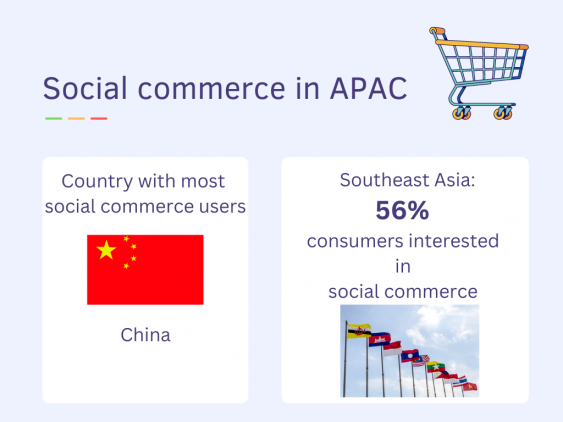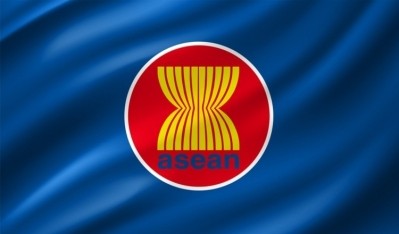VitamINSIGHTS
Livestreaming, social commerce, influencer marketing…How much has APAC’s nutra sector progressed?

Those are three of the key questions we set out to address in the our latest in-depth edition of VitamINSIGHTS.
In China, where the country is leading livestreaming trends, about 45 per cent of the companies surveyed said they started to use livestreaming in year 2020 – the year COVID-19 began – based on a survey involving 51 companies by Shanghai-based market research firm iResearch Consulting Group.
A breakdown shows that 25.5 per cent of them started using livestreaming in the first six months of 2020, while 19.6 per cent did so in the second half of 2020.
Prior to the pandemic, the proportion of surveyed respondents which used livestreaming was 39.2 per cent.
Towards the second half of 2021, the proportion of surveyed respondents who dabbled into livestreaming was lower at 9.8 per cent.
Elsewhere in South East Asia, social media, short videos, and messaging have become the most preferred online channels for discovering new brands and products.
Sixty-two per cent of the consumers have cited the above as the top channels for online discovery, according to a report published by Bain & Company in collaboration with Facebook in August 2020.
Fast forward to the second half of 2022, how has livestreaming, social commerce, and social influencers marketing evolved? To what extent are these tools still lucrative?
Source: Statista
Part I: Ready, get set, go – Catching up in China’s livestreaming, social commerce market
New South Wales-based brand and retailer firm AuMake is making a comeback for its livestreaming services – targeted mainly at China consumers and Chinese living in Australia and New Zealand.
AuMake specialises in the sale of its own same name branded nutrition and personal care products, as well as other Australian and New Zealand brands. Some examples include Blackmores and Swisse.
The firm announced in August that it would be developing an APP for the delivery of livestreaming via a multi-channel network.
The influencers hosting the livestreaming sessions would be recruited from the firm’s existing network of daigous and will be trained in-house.
“Throughout China, livestreaming has become hugely popular as it provides an opportunity for shoppers to be entertained and shop at the same time.
“According to McKinsey, livestreaming in China is the next big wave of ecommerce and is expected to be worth around $423 billion this year,” the firm said in its Australian Securities Exchange (ASX) statement.
Speaking to NutraIngredients-Asia, Lisa Goodhand, chief operations officer at AuMake, said that the purpose of the new app was to bolster its livestreaming activities.
At the moment, the firm is already operating social commerce via its Wechat mini app that has about 48,000 followers.
Most of them are from Guangzhou and 80 per cent of the shoppers are women.
Pre-pandemic, the firm was heavily invested in its retail presence across Australia, targeting Chinese tourists visiting the country.
The firm’s first encounter with social commerce using Wechat mini APP and livestreaming via the APP came in 2019, which turned out to be a “critical and influential part” of its business.
However, its livestreaming activities were adversely affected during COVID-19 due to movement restrictions.
“We were unable to go to the warehouse where we usually conduct livestreaming, and livestreaming had to be suspended during that period, despite the fact that livestreaming was booming in China during COVID-19.
“The firm is now starting to reignite its livestreaming capabilities,” Goodhand said.
The relaunching of its livestreaming capabilities is meant to achieve three goals.
One of it is for livestreaming to become a crucial sale channel for AuMake, to engage the consumers, and introduce new products.
During livestreaming, consumers would be able to purchase the products without leaving the livestreaming, Goodhand said.
In fact, as part of its long-term planning, the firm hopes to set up a certified livestreaming academy.
“Our goal is to have a certified livestreaming academy. We are working towards bringing the curriculum from China and instituting it here in Australia so that we can eventually go down the path of being able to not only train livestreamers, but also give them recognition for their studies,” she said.
She categorises the livestreamers into two categories: Key Opinion Consumers (KOCs) and Key Opinion Leaders (KOLs).
The former are individuals who a following of about 500 to 2,000 in the private network group in China and sell the products individually.
“Pre-COVID-19, we have about 100,000 daigous in that network. They have followers anywhere between 500 to about 2,000. They are not celebrities in the strict definition of the meaning, but they certainly have a following.”
On the other hand, KOLs have a much stronger following, anywhere from 1,000 to even 40,000 followers.
Watch the following video to find out more.
Part II: Be careful of what you say
Along with its popularity, livestreaming has also come under the attention of authorities who are concerned of livestreamers who make exaggerated, false, misleading claims – especially when it comes to health supplements.
Lennie Tao, regulatory analyst at ChemLinked, Reach24H Consulting Group, pointed out two scenarios in which certain health and nutrition products are not allowed to be promoted via livestreaming.
First, products that are not allowed to be sold within China cannot be promoted via livestreaming.
Second, products that are prohibited from being advertised in the mass media cannot be promoted via livestreaming. An example is Food for Special Medical Purposes (FSMP).
She also pointed out that the supervision over livestreaming has become stricter in China, with local governments keeping an eye on such activities as well. Some examples include the Shanghai and Zhejiang government.
“As the influence of livestreaming gets greater in recent years and the industry sees more problems, the supervision over livestreaming is getting stricter at present.
“The guide by Shanghai denoted that products like health food whose advertisement shall be reviewed by authorities in advance are not appropriate to be promoted via livestreaming.
“Although it is not appropriate, it is not prohibited. But from this requirement, we can see the supervision of livestreaming does become stricter,” she said.
So far, some of the rules related to livestreaming include a self-regulatory guideline known as Livestreaming Marketing Code drafted by China Advertising Association, Online Transaction Supervision and Management Measures released by the State Administration of Market Regulation (SAMR) in March 2021, and the Administrative Measures for Livestreaming Marketing (Trial).
When it comes to making health or functional claims, livestreamers must be conscious not to associate such claims with general food or products that are not ‘blue-hat’ certified.
She gave an example where Abbott was fined by the Shanghai government in August – a case which was published in various local media, including Sina.
“The Market Regulation Department of Shanghai Pudong New Area issued the decision to fine Abbott 200,000 yuan in August this year, for the company’s illegal advertising.
“As revealed by the decision, the involved company claims in a livestream that two of its infant formula products can stimulate kids’ potential to grow taller and relieve constipation for babies
“To be specific, only products get the ‘blue hat’ certificate from the authority can be recognised as health food. Without this blue hat product certificate, many sold beverage products and probiotic products are only regular foods and cannot make function claims,” she said.
On the other hand, the way the livestreamers describe the products should follow China’s Advertising law.
For example, it is illegal to use terms such as “The lowest price in the whole network”, "national level," “best” and “number one”.
Also, kids under 10 years old cannot endorse any products, Tao pointed out.
In addition, it is not allowed for firms to deceive or mislead consumers by deleting or blocking relevant unfavourable comments or faking the number of views and likes.
She emphasised that the products sold via livestreaming should meet the requirements of national laws and regulations for product quality, standards, as well as production, sales permit certification, and product quality certification.
“It means the livestreaming of nutritional products still need to follow China’s Food Safety Law, E-commerce Law, Advertising Law, Anti-unfair Competition Law, Law on the Protection of Consumer Rights and Interests, etc,” she said.
Goodhand added that firms should also be familiar with the rules of different livestreaming platforms, as firms that have stepped out of the line could be banned and risk losing their followers to other livestreamers.
Part III: Beyond China
The trend of going on livestreaming sessions and relying on product endorsements by influencers has also seeped into South East Asia.
Watsons Malaysia, for example, has launched the SuperKakiWatsons campaign aimed at promoting its in-house products ranging from personal care to supplements.
Under the campaign, any member of the public could become a content creator for Watsons’ in-house products.
They will simply need to record a video of them reviewing the product, explain why they are the ultimate content creator, and upload the video to Instagram of TikTok, using the hashtag #superkakiwatsons and #watsonsmy.
The video submission period is between September 8 and September 29, and the winner could win prizes over RM$30k (US$6,500).
Goodhand also said that the firm’s long-term plan is to reach out to consumers in South East Asia via livestreaming.
Within Australia, she observed that some brands that the firm has been working with still do not fully understand the purpose and advantages of livestreaming.
One common misconception is that livestreaming is the same as promoting the products on TV shopping channels.
To which, she explained that livestreaming is different in that it would be far more engaging and entertaining.
“Livestreaming in China is far more sophisticated and the technology integrations that connect livestreaming and e-commerce into one platform are a lot more sophisticated. There is a huge difference between the two.
“Livestreamers in China are fully interactive. You have your livestreamers building rapport with the audience and also educating the audience about the products.
“They also have loyalty and rewards programs, so you can send gifts to your livestreamers, or you can also get special benefits or discounts for participating and interacting.
“Quite often, livestreaming programs also incorporate giveways and freebies, so your livestreamer will encourage you to live or comment or interact with them and then in return, you stand to win a chance of getting a free product or hongbao (red packet) that you can use for your shopping,” she said.













